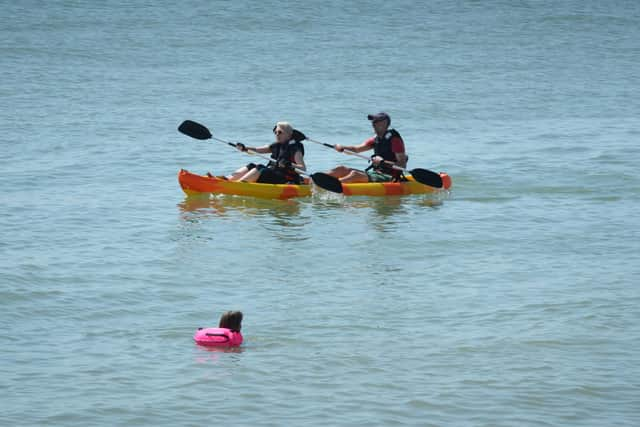This is when experts say it is safest to go swimming in the sea
and live on Freeview channel 276
The RNLI and other experts have recently issued important advice about going swimming outside.
Experts from outdoorswimmer.com have highlighted the importance of swimming at the right times during the day and paying attention to the tides.
Advertisement
Hide AdAdvertisement
Hide AdThey warn that as the peaks and troughs of tide waves pass there will be a change in depth.


At high tide, they said, water covers the beach and people can find themselves quickly out of their depth.
The website recommends that people who are not experienced swimmers (or those who have children with them) should swim at low tide when it is safer.
The RNLI is warning people about the dangers of cold water shock if they choose to cool off in open water.
Advertisement
Hide AdAdvertisement
Hide AdCold water shock can happen in water temperatures below 15 degrees celsius and have a serious effect on someone’s body, said the charity.
Gabbi Batchelor, RNLI water safety education manager in the South East, said: “With so many people enjoying the water this summer, it is important that we all know the risks.
“Even with the temperatures soaring, the fact is that the water is still cold.
“The sea temperature around the UK and Ireland rarely gets above 15 degrees celsius, and rivers such as the Thames are colder even in the summer, so the risk of cold water shock significantly increases as air temperatures rise.”
Advertisement
Hide AdAdvertisement
Hide AdGabbi said the effects of cold water shock are serious as it causes people to breathe in the water, weakens muscles, and immediately affects the heart.
The RNLI said there were 277 deaths in the UK from accidental drownings last year across inland and coastal locations.
The charity urged those heading to the coast to visit a lifeguarded beach and to swim between the red and yellow flags.
Gabbi said: “If you get into trouble in the water, Float to Live.
Advertisement
Hide AdAdvertisement
Hide Ad“Lean back, using your arms and legs to stay afloat. Control your breathing, then call for help or swim to safety.
“In an emergency, call 999 or 112 for the Coastguard, or the fire and rescue service if you are inland.”
Visit www.sussexexpress.co.uk for breaking news in your area.
